Because they are cutting-edge, adaptable, and robust, zero-turn mowers are quite the talk in the lawn care industry. The name of these mowers, which alludes to the zero-degree turning radius, contains the main attraction and the most crucial feature. Its exceptional maneuverability is facilitated by the independent wheel motor, which enables the operator to control each one separately and thus eliminates the need for a turning space.
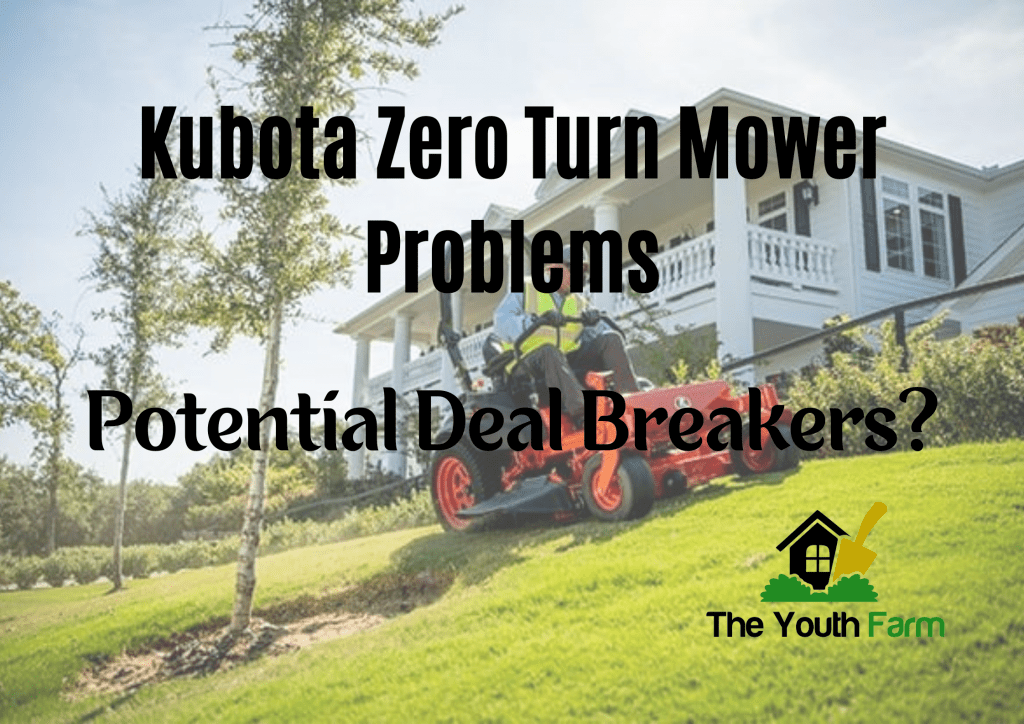
This quality is crucial if your yard is small or you want to save money on lawn-finishing supplies because you probably won’t need any. This is sufficient evidence that a decent mower may significantly improve lawn care and maintenance. But like any machinery, your zero turns may also quit occasionally, and it is good to know upfront what to expect.
Kubota Zero Turn Mower Problems • Potential Deal Breakers?
Kubota is a company that has established a reputation for producing sturdy zero-turn lawnmowers. The Kubota Corporation is a Japanese multinational company with headquarters in Osaka and origins dating back to 1890. They specialize in various items, including engines, construction equipment, and agricultural machines.
The Kubota Tractor Corporation, which has its headquarters in Grapevine, Texas, handles the marketing and distribution of Kubota goods, and the Kubota American Manufacturing Corporation, which is based in Gainesville, Georgia, produces Kubota goods in the country as well.
However, despite the brand’s reputation for durability and reliability, troubles might be encountered at any time while owning or using one of its zero-turn mowers. We are here to list a few of the most typical problems that consumers have encountered and determine whether the issue can be remedied.
Most common Kubota zero-turn mower problems
Starting issues
Any zero-turn mower you can find will frequently experience starting issues, and Kubota is no exception. It is frequently observed when a machine is left idle in your garage, when it is too cold outside, when the battery is dead or weak, or when there are other connection problems. You should check certain things to assess the damage to judge whether it is irreparable or not and attempt to resolve it or contact a professional to suit your needs.
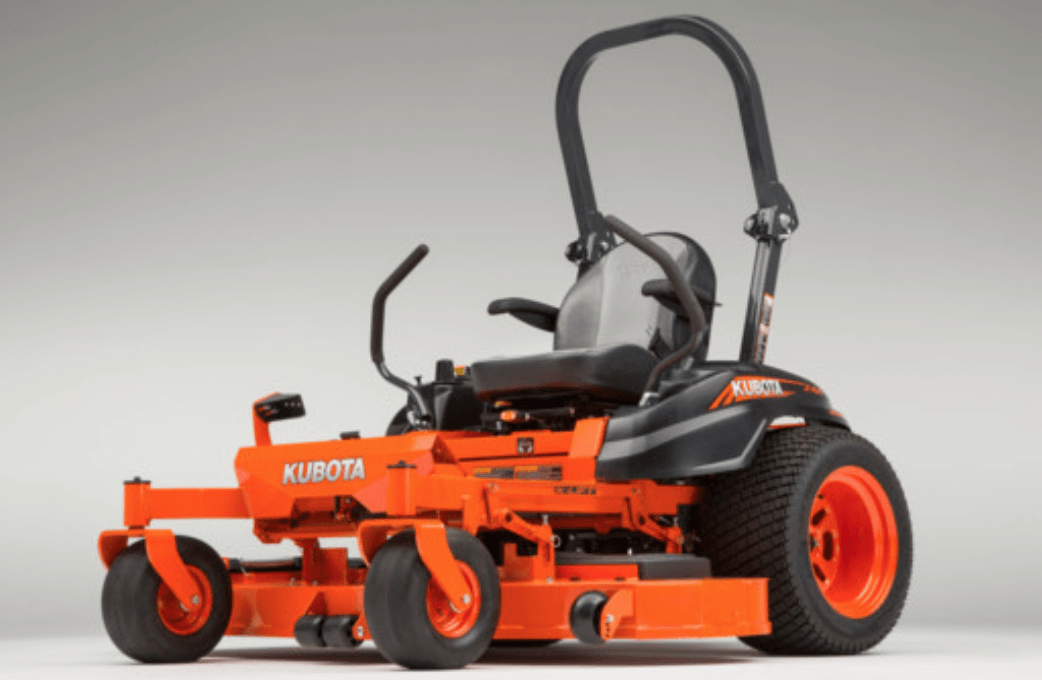
The actions that should be taken in case of starting troubles include checking the air filter for any clogging that might be inhibiting the engine from receiving enough air, getting rid of old gasoline or maintaining fuel levels, any fuel filter obstruction, deficient spark plugs that might be incapable of producing enough electrical charge to start the ignition, and safety keys.
Hydraulic Transmission issues
To propel the wheels smoothly and comfortably, hydrostatic transmissions employ hydraulic fluid. However, issues with the hydraulic system can lead to transmission breakdowns, and a Kubota owner may eventually find themselves in this situation. Transmission problems could cause your mower’s loss of steering power or inability to move forward and backward.
This problem is likely caused by low hydraulic fuel levels, the air in the system from leaks, or any debris that has gotten stuck in the system. Check the hydraulic fluid levels and top them off, bleed out any air in the system in accordance with the instruction manual, and use hydraulic fluid to drain out any debris are some corrective measures that may be taken. If those don’t work, you can always contact a technician.
Noise and Vibrations
With a gas-powered zero-turn mower like the Kubota, sounds and vibrations are unavoidable. The noise could have a modest source, such as clogged debris in your machine, but if it is louder than usual, you should look for a possible loose blade assembly or worn spindle or pulley bearings.
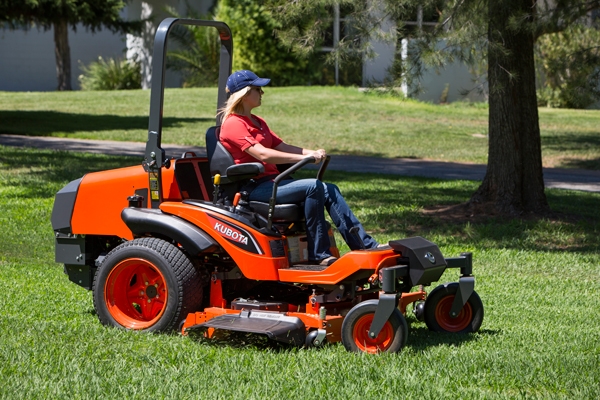
Overheating
Another typical problem that many customers have is overheating, which, if not addressed right away, can result in radiator issues that can further complicate matters by seriously damaging the engine. You might want to look into overheating from a productivity standpoint, as it can also cause the mower to stall regularly. This problem primarily results from a filter that has become clogged, which is normal due to the dust and debris from mowing the lawn and should be cleaned regularly.
Smog
Your concern about the rising emissions from your Kubota zero-turn mower is quite fair, given that they could indicate mechanical issues with your machine and be hazardous to the environment. If the smoke gradually disappears, then it is not a thing to worry about, as this could indicate that the filters are causing the extra fuel to burn off. Other causes can include the air filters’ inhibition of airflow. Low fuel levels can cause many mechanical faults, so keep them under control and keep an eye out for leaks that could pose a problem.
Steering
It appears that the issues some users have had while operating the mower go beyond simple skill issues. Some consumers criticize the handlebar’s rigidity, while others report that the mower tends to tip in one way and is challenging to manage. Insufficient lubrication or excessively tightened fasteners may be the cause of handle issues. The mower may be tilting in one way more than the other because of unequal tire pressure or improperly set tracking, which may cause one tire to travel more quickly than the other.
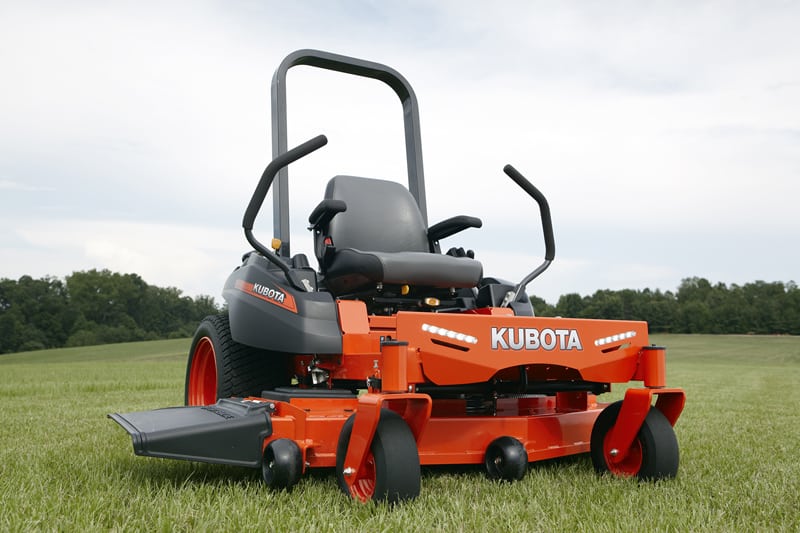
PTO problems
Kubota zero-turns frequently experience problems with PTO (power take-off). PTO shaft spinning even when PTO is not engaged, which could be minimal but is sufficient to cause the attachment to rotate, raising safety concerns. This issue could be brought on by a lousy clutch pack brake disc or improper PTO control valve adjustment.
PTO not thoroughly engaging could also be a problem, which can be investigated by checking t the clutch’s hand lever for any potential twisted connections that might prevent the clutch from engaging. The PTO might also scrape but not turn. If manual labor is insufficient, which it most likely will be in this instance, it is best to seek expert assistance.
Cut quality issues
Kubota zero turns could initially produce excellent cuts, but over time, the cut quality might become unsatisfactory. Some of the usual issues are streaking (thin strips of uncut grass), stepped cutting (sharp ridges on the ground after mowing), stingers (patches of uncut grass), and uneven cuts.
The most common causes of poor trim quality include dull or worn blades, improper deck leveling, dented blades, broken deck shells, damaged mower spindles, and decks clogged with clippings. While some issues can easily be caused by operator error, you should check for any of these before calling it quits.
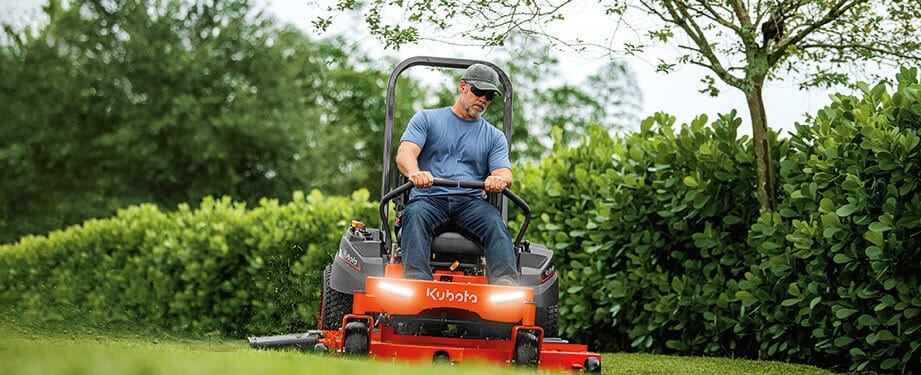
FAQs | Kubota Zero Turn Mower
Is Kubota a good brand?
Yes, Kubota has an excellent reputation for making good quality machinery, but trusting a brand would not be wise. Any equipment you intend to buy should be carefully examined instead.
How many hours will a Kubota zero-turn last?
Given that a typical user only uses a machine for a few hundred hours a year and that a regular zero-turn owner can anticipate the machine to last for roughly 5000 hours with proper maintenance, that quickly translates to several decades. Even 10,000 hours may be squeezed out of the device by a professional.
Does Kubota make a good zero-turn?
Kubota does give other brands tough competition when it comes to maneuverability.
Closure | Kubota Zero Turn Mower Problems
With so many manufacturers hopping on the bandwagon of adding them to the inventory, the advantages of a solid zero-turn are undoubtedly not disregarded. And Kubota is no different from other brands in having its successes and failures in this endeavor. Additionally, given that Kubota zero turns are pricey—even for a zero-turn mower—you would want to consider the potential issues to avoid having buyer’s regret.
Despite their high quality and robust construction, these mowers have specific issues, which we have sought to describe to aid you in making a selection or becoming a more informed consumer. Please do not hesitate to contact us with any additional questions. Enjoy your time at the stores.
